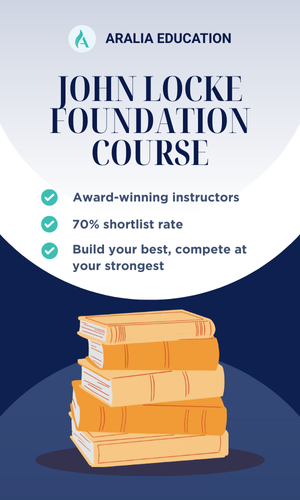What is 1-on-1?
1-on-1 means you work directly with a mentor who provides personalized guidance. This person is usually a teacher, tutor, or expert. This focused attention allows the instructor to tailor lessons specifically to your strengths, weaknesses, and learning style.
This approach is especially beneficial for students who require additional support in a specific subject, prefer a quiet and distraction-free environment, or benefit from consistent feedback and encouragement. It’s also ideal for learners working toward an individualized goal, such as preparing for standardized tests, improving writing skills, or building a portfolio.
1-on-1 sessions may be prioritized during transitional periods, such as moving from high school to college or shifting career paths, when personalized direction and motivation can make a significant difference.
Benefits of 1-on-1
- Personalized learning: The instructor can customize lessons to fit your pace and interests. If you struggle with a concept, you get extra support right away.
- Focused attention: With no distractions from others, you can ask questions freely and get immediate feedback.
- Goal setting and accountability: An instructor can help you set clear goals and provide motivation to reach them.
Challenges of 1-on-1
- Cost and availability: Personalized instruction can be expensive or hard to find.
- Less peer interaction: You might miss out on learning through group discussions or different perspectives.
Where to Find 1-on-1 Mentors
- School teachers and counselors: Many teachers offer extra help after class or can recommend peer tutors.
- Online tutoring platforms, such as Wyzant, com, and Chegg Tutors, offer access to qualified tutors in various subjects.
- Local tutoring centers: Places like Kumon, Sylvan Learning, or community centers often offer 1-on-1 tutoring sessions.
- Peer mentorship programs: Some schools and clubs organize mentorship where older students guide younger ones.
Improve Your Grades Within One Semester
What are Small Group Classes?
Small group classes involve working with a few peers, usually between three and eight students, guided by an instructor or facilitator. It encourages collaboration, discussion, and shared problem-solving.
This method is ideal for students who enjoy interactive learning, benefit from hearing different perspectives, or feel more motivated in a team setting. It is especially effective for subjects that require open-ended thinking, such as group projects or brainstorming, including literature, design, and social studies. In these settings, students engage in more in-depth discussions and develop creative solutions collaboratively.
Besides academic advantages, small group classes also help improve students’ communication skills, build confidence, and create a sense of community, making it an excellent choice for those seeking both critical thinking and group engagement.
Benefits of Small Group Classes
- Peer interaction: You learn from others’ ideas and questions, which can deepen your understanding.
- Teamwork skills: Working with others builds communication and collaboration skills.
- Shared motivation: Group members often encourage and challenge each other, creating a supportive learning environment.
Challenges of Small Group Classes
- Less individual attention: The instructor’s focus is divided among several students, resulting in less personalized help.
- Different learning speeds: Some students might feel left behind if the group moves too fast, or bored if it moves too slow.
- Group dynamics: Sometimes, personalities or conflicts can affect the learning experience.
Where to Find Small Group Classes Opportunities
- School study groups: Many students form or join study groups for subjects like math, science, or foreign languages.
- After-school clubs: Robotics clubs, coding clubs, and math teams often include group learning activities.
- Online group classes: Platforms like Outschool, Khan Academy Live, or Coursera offer interactive courses with small groups.
- Community centers and libraries: Some host group tutoring sessions or homework help groups.
Which Option Boosts Academic Growth More?
The answer depends on your learning style, goals, and the subject you are studying.
- If you prefer personalized guidance and want to focus on specific skills, 1-on-1 mentorship might be more effective.
- If you enjoy collaboration, benefit from hearing multiple perspectives, and want to build teamwork skills, small group classes could be a better fit.
Many students find that a combination of both works best. For example, they might attend small-group classes for general learning and use 1-on-1 sessions to target challenging topics.
How to Decide What’s Best for You
Consider these questions:
- Do you prefer learning at your own pace, or do you enjoy group discussions?
- Are you comfortable asking questions in a group, or do you prefer private help?
- What are your academic goals? Do you need focused skill development or broader collaboration?
- What resources are available to you?
Both 1-on-1 and small group classes offer valuable opportunities for academic growth. Understanding the strengths and challenges of each option can help you select the most suitable approach to meet your needs. Remember, the best learning happens when you stay curious, get engaged, and find support that helps you reach your full potential!
Aralia Diverse Programs
Where Ambition Meets Achievement
Aralia Education is a premier online education platform for ambitious middle and high school students worldwide. Join small groups and personalized 1-on-1 classes led by renowned high school teachers and university professors from prestigious American institutions. Through Aralia Education, students will build a strong foundation in traditional academic courses, stand out as accomplished and ambitious individuals in college applications, and be well-equipped to excel in any standardized tests.
Our teachers actively engage and guide students in exploring personal interests beyond their school curriculum. With this holistic approach, Aralia ensures its students are well-prepared for college and equipped for success in their future careers.








